As recently as early May, optimism ran high that the United States and China were nearing an agreement to resolve their escalating trade dispute. But talks have hit an impasse, with both sides announcing new rounds of tariffs over the past few days.
In an interview on Fox News Sunday, White House economic adviser Larry Kudlow explained that a key point of contention is U.S. insistence that Chinese commitments be “codified by law in China, not just a State Council announcement.” According to Kudlow, the U.S. seeks “very strong enforcement provisions” to correct past Chinese behavior on trade, which he characterized as unfair, nonreciprocal, and sometimes unlawful.
Various U.S. media reported that the Chinese side was averse to the idea of a foreign country dictating Chinese law. Instead, negotiators from Beijing reportedly offered to codify the agreement through regulatory and administrative actions. The standoff raises an important question: If the other substantive issues can be resolved, would an agreement be enforceable even if it falls short of being codified in national laws?
The difference between “laws,” “regulations,” and “rules”
First, it is useful to outline the distinctions between some common terms in China’s legislative landscape.
National laws, local regulations, State Council regulations, and rules are all part of what is collectively called “legislation” (lifa). National laws (falü) are adopted by China’s National People’s Congress (NPC) and the NPC Standing Committee pursuant to formal procedures—including public notice and comment—set forth in the Legislation Law. Similarly, local regulations (difangxing fagui) are adopted by the people’s congress operating in a particular province or autonomous region. State Council regulations (xingzheng fagui), which are legally binding and enforceable, are also governed by the Legislation Law and subject to public comment and other procedures stipulated in State Council implementing regulations (colloquially, the “Rulemaking Regulations”). The same applies to rules (guizhang), which are promulgated by central departments and local governments.
Although less authoritative than laws, State Council regulations are still national in scope, extending from the central government down to township-level governments. State Council regulations are superior to local regulations and rules. They are used both to implement and fill gaps in national law, but they must not conflict with superior law or make provisions for criminal matters, deprivation of citizens’ political rights, compulsory measures or penalties restricting a citizen’s personal freedom, or the judicial system.
For example, after China’s Foreign Investment Law (FIL) was passed in March 2019, Premier Li Keqiang promised quick action to formulate necessary regulations to implement the law’s general principles before it takes effect on January 1, 2020. The FIL addresses several concerns at stake in the U.S.-China trade negotiations, including forced technology transfer, equal treatment in government procurement, and disclosure of trade secrets during the administrative process. The recently issued 2019 State Council legislative plan includes “relevant supporting regulations” to implement the FIL, though it does not specifically name any.
In contrast to regulations, State Council decisions, circulars, and orders are not “law.” They operate somewhat like circulars and memoranda issued on behalf of the White House by the Office of Management and Budget, which are politically binding but not legally enforceable. By a similar measure, China’s ministries, departments, and local governments issue various documents that regulate matters within their jurisdictions but that do not go through rulemaking procedures and are not considered law. However, these issuances—which are known as regulatory documents (xingzheng guifanxing wenjian)—can be challenged in Chinese courts under some circumstances.
How long does it take to promulgate Chinese legislation?
Prior to adoption, most new national laws—and substantial revisions to existing laws—go through three readings by the NPC and one or two rounds of public notice and comment. Relatively minor or technical revisions may only receive one reading and no public comment opportunity. Drafting and passage can take years, but this process can also be expedited. Such was the case for China’s National Intelligence Law, which was published once for comment in May 2017 and then adopted one month later after just two readings.
In the case of the FIL, which had been under development since 2013 and was scheduled for its first reading in December 2018, expedited procedures were adopted in apparent response to the U.S.-China trade negotiations. These included a specially organized meeting of the NPC Standing Committee to hold a second reading of the draft in January 2019 (while the public comment period was still in process) and a last-minute revision just days before final approval by the NPC to add specific language on protecting business secrets during the foreign investment regulatory process.
State Council regulations normally go through only one round of public comments, and their drafting, revision, and adoption can move more quickly than the standard process for national laws. However, finalization of these regulations can be delayed by substantial controversy (be it public or internal) or other factors. For instance, the revision of the State Council Open Government Information Regulations (i.e., China’s freedom of information statute) and the adoption of the State Council Regulations on Major Decisionmaking Procedures—both areas not covered by national law—were issued for public comment in mid-2017 and took nearly two years to finalize.
Similar procedures apply to the adoption of departmental and local government rules, which can also experience delays. The Cyberspace Administration of China released controversial measures restricting cross-border data transfers for public comment two years ago, but the rules have been shelved due to strong foreign pushback.
How is Chinese legislation repealed or withdrawn?
The same basic procedures for making legislation apply to revision and repeal. However, very few laws are repealed. Instead, they are typically replaced by a new or substantially revised law, as occurred with the 1993 State Security Law upon adoption of the 2014 Counter-Espionage Law, as well as with the three original foreign investment laws that were replaced by the FIL.
State Council regulations and departmental rules are more frequently repealed, especially when they conflict with newly enacted or revised superior legislation, and this process occurs pursuant to the same procedures set forth in the State Council Rulemaking Regulations. Under the Legislation Law, laws passed by the NPC Standing Committee can also be withdrawn by the full NPC—and, likewise, any lower-level legislation can be withdrawn by the next-highest legislative body—if they are found to be inconsistent with China’s Constitution or superior legislation.
What this means for the trade talks
China’s legislative process, like everything else in China, falls under the leadership of the Chinese Communist Party. This means that laws and regulations, and the legislative process itself, have the backing of the CCP, but they may also be overturned or ignored when politically expedient. Nonetheless, China’s legislative arena has become increasingly professionalized and participatory in recent years.
As it relates to U.S.-China trade talks, Chinese commitments that are codified in NPC laws would clearly be the most authoritative and meaningful. But if other issues are satisfactorily resolved, well-drafted State Council regulations might be an acceptable alternative for some issues. They apply nationwide (not only at the center but also at local levels of government), they are generally more detailed than laws, they are subject to notice and comment procedures, and they are enforceable in Chinese courts. Moreover, regulations can always be upgraded into NPC law later, which may make them at least a reasonable stepping-stone to a final agreement in the trade dispute.
The Brookings Institution is committed to quality, independence, and impact.
We are supported by a diverse array of funders. In line with our values and policies, each Brookings publication represents the sole views of its author(s).

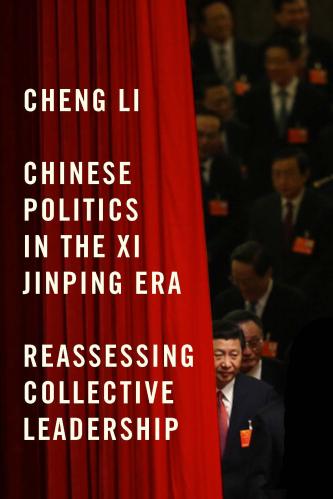

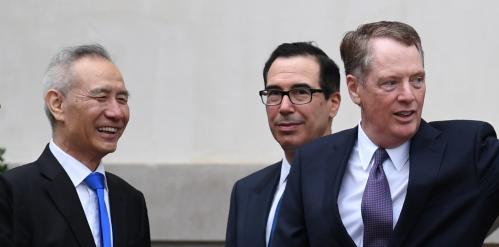

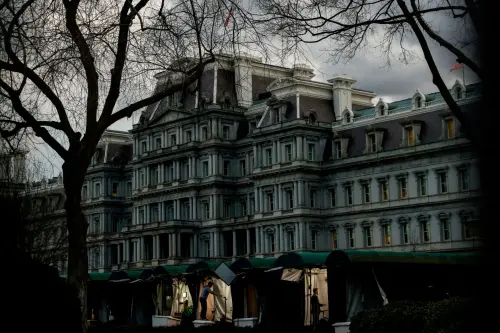
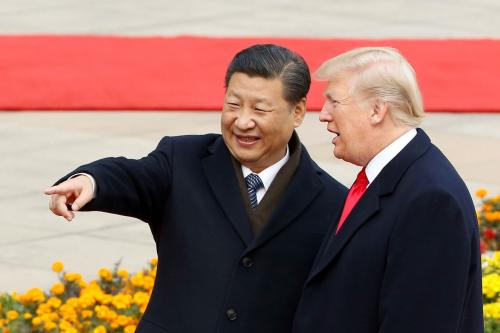
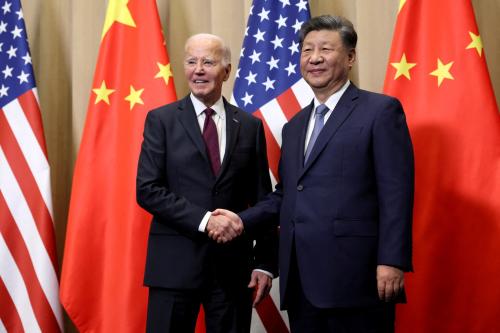
Commentary
A primer on how Chinese law might enforce a US-China trade deal
May 15, 2019